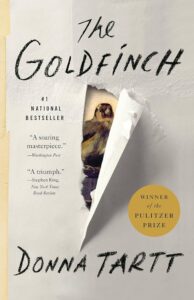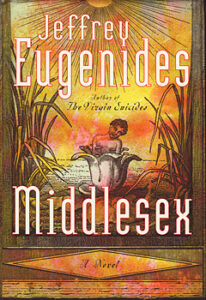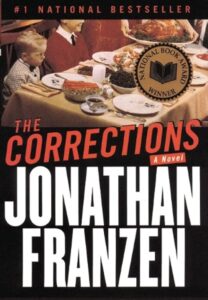When The New York Times Book Review published its list of The 100 Best Books of the 21st Century earlier this year, thousands of readers reacted with criticism. The post got flooded with comments questioning the criteria for inclusion, expressing personal preferences, and pointing to various oversights.
The list was made based on feedback from 500+ writers, poets, and critics, but NYT soon realized it must factor in readers’ voices as well. In response, it launched an open survey that resulted in an alternative list with (only) 39 matching entries.
In parallel, another opportunity for readers to weigh in was launched on Instagram by @bookatorium, a profile well-known to the bookstagram community of Serbia and the Balkans. Dajana Milovanov, the face and soul behind this page, invited her followers to share their top ten picks and committed to counting the votes. Based on 60 responses, she assembled a list of top 50 novels that only partly overlaps with the NYT’s list, while also featuring some of the regional works that deserve global attention.
Knowing Bookatorium for her other engaging posts and insights, we were excited to contribute and be part of this fun initiative. For those who might not know her yet, Dajana also runs an insightful literary blog, a Short Story Book Club, as well as literary workshops dedicated to classic literature, wittily titled Klasiciranje.
With her permission, here we’re republishing the top 10 from her list, and for the rest we highly recommend you follow @bookatorium and browse her pinned stories!
10. The Goldfinch, Donna Tartt (2014)

Ranked 4th on the TNY’s Readers’ Top 100 list, this Pulitzer Prize-winning novel seems to be equally loved by the local readers (who can now enjoy the new Serbian edition from Dereta). The Goldfinch also holds a high position on the Best Literary Fiction of 21st Century list by Goodreads, which is another good indicator of its popularity and, presumably, quality as well. This coming-of-age story published in 2014 has defined the subgenre called dark academia, receiving notable critical acclaim for its compelling story, perfect pacing, plausibility, and overall aesthetic.
9. Never Let me Go, Kazuo Ishiguro (2005)
The 2017 Nobel Prize winner was previously featured on our website as one of our all-time favorite British authors and we were excited to find his Never Let me Go on Bookatorium’s list! Although commonly classified under the sci-fi category, this novel is much more than a work of outstanding imagination. It is a remarkably authentic exploration of the human soul and as such certainly deserves all the praises and honors it continues to win 14+ years upon its publication.
8. A Tale for the Time Being, Ruth Ozeki (2013)
This one can be seen a major oversight by NYT, especially as it holds the 18th place on Goodreads. Written by the American-Canadian novelist, filmmaker, and Zen Buddhist priest Ruth Ozeki, this story offers us a warm and witty narrative of a troubled schoolgirl born in Silicon Valley and later forced to move with her Japanese-born parents back to their home country. Influenced by her father’s job loss, the move to Tokyo becomes a challenging experience for the title character Nao, whose diary ends up with a Japanese American writer in British Columbia after the devastating tsunami that hit Japan in 2011.
7. Middlesex, Jeffrey Eugenides (2002)

Another Pulitzer Prize winner on this list and certainly a novel that continues to captivate readers around the world. Ranked 18th on the NYT’s list, Eugenides’ Middlesex has become a modern classic, addressing the topics such as gender identity and the pursuit of the American Dream. With its many allusions to Greek mythology within a carefully developed family saga, this novel still appeals to different types and generations of readers.
6. 2666, Roberto Bolano (2004)
Ranked 64th on the NYT’s list, Roberto Bolano’s last novel is often considered his greatest achievement. Published posthumously, it has cemented the author’s already notable position in the world of Chilean and global literature. 2666 is a collection of five thematically connected mini-novels dealing with violence and subjective experiences of history, as they unfold a story of killings in a fictionalized border town in Mexico.
5. My Brilliant Friend, Ellena Ferrante (2018)
Ferrante’s inaugural part of the Neapolitan Quartet proudly ranks #1 on both NYT and Goodreads lists, which is no wonder given all the critical and reader acclaim it has received over the years. The fact it holds (only) the 5th place on our list just proves that Bookatorium was right in thinking that her followers’ preferences would not entirely match the ones “imposed” by NYT. Ferrante’s quartet follows two friends born and raised at the outskirts of Naples as they navigate their social circumstances, love affairs, family relations, and the changing political landscape.
4. The Corrections, Jonathan Franzen (2001)

From the 28th place on NYT’s and 30th place on Goodreads’ list, Franzen’s turn-of-the-century masterpiece has made it to the top five on our list. The story of an elderly couple from the American Midwest and their three adult children is a poignant criticism of modern Western society presented through multiple lenses. This seems to be one of those books that is both comic and tragic, and as such truthfully depicts life itself.
3. The Road, Cormac McCarthy (2006)
One of the most widely read McCarthy’s Southern Gothic novels is the third Pulitzer Prize winner on our list. Ranked 30th on the NYT’s list, The Road is widely considered the author’s masterpiece and its position on this list only testifies to that. The novel is set in the post-apocalyptic United States, depicting the journey of a father and son who need to move south in the barely inhabited world in order to survive.
2. My Struggle, Karl Ove Knausgard (2009-2011)
The much-hyped autobiographical novels by the Norwegian author Karl Ove Knausgård were curiously left out from either NYT’s or Goodreads’ list. Redditors have readily offered a possible explanation, suggesting that people would list different parts of this six-volume piece in their votes, making it difficult for either one to rank. Whatever the case, the fact it ranks so high on our list is hardly surprising given its unceasing popularity among millions of people across the world. Chronicling his life and experiences in a compelling and relatable fashion, Knausgård has become a symbol of the autofiction mode, which in recent years seems to have gained a more prominent place on the global literary scene.
1. Semper Idem, Đorđe Lebović (2004)

The No 1 on our list is hardly a surprise to anyone actively following the local literary scene or bookstagram community. This warm, witty, and historically relevant story by Serbian playwright and novelist Djordje Lebovic is according to many a masterpiece of Serbian fiction in general. The narrative revolves around the treatment of Jews prior to and during the World War II in Yugoslavia, with the author offering us his childish yet incredibly clever perspective on the world around him. His masterfully built characters, the vividness of local settings, and the striking perspective on the evil that was done during WWII make it impossible for anyone to stay detached from this book.
Sadly, Semper Idem doesn’t seem to have an English translation that would give it more visibility in the global literary circles. Hopefully this changes in future and we get to see it featured on one of the next NYT lists.
Until then, thanks to Bookatorium it will reign another respectable list on Instagram, and this is by no means a small thing.
- Bookstagram’s Top 10 Books of the 21st Century - October 12, 2024
- Poetry Monday – Awakening in the midst of Autumn - October 16, 2017
- WDWRM - June 23, 2014


